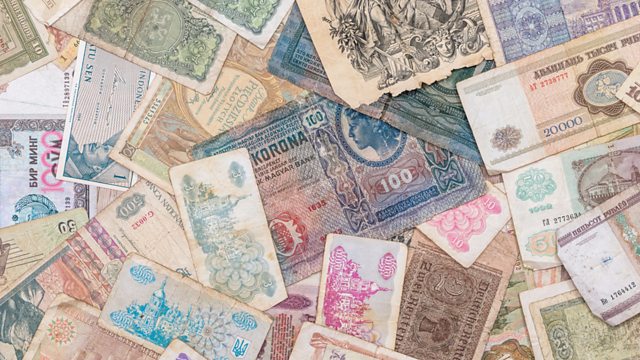Paper Money
Currency derives value not from the preciousness of the substance of which it is made, but trust in the government which issues it.
A young Venetian merchant named Marco Polo wrote a remarkable book chronicling his travels in China around 750 years ago. The Book of the Marvels of the World was full of strange foreign customs Marco claimed to have seen. One, in particular, was so extraordinary, Mr Polo could barely contain himself: βtell it how I might,β he wrote, βyou never would be satisfied that I was keeping within truth and reasonβ. Marco Polo was one of the first Europeans to witness an invention that remains at the very foundation of the modern economy: paper money. Tim Harford tells the gripping story of one of the most successful, and important, innovations of all human history: currency which derives value not from the preciousness of the substance of which it is made, but trust in the government which issues it.
Producer: Ben Crighton
Editors: Richard Knight and Richard Vadon
(Image: Ancient Russian money, Credit: RomanR/Shutterstock)
Last on
Sources and related links
William N. Goetzmann -Β Money Changes Everything: How Finance made Civilisation Possible, Princeton, Chapter 9
William N. GoetzmannΒ and K. Geert Rouwenhorst - The Origins of Value,Β Oxford University Press 2005
Broadcasts
- Sat 29 Jul 2017 02:50GMTΒιΆΉΤΌΕΔ World Service except Online, Australasia, News Internet & UK DAB/Freeview
- Sat 29 Jul 2017 19:50GMTΒιΆΉΤΌΕΔ World Service except East and Southern Africa, News Internet & West and Central Africa
- Mon 31 Jul 2017 03:50GMTΒιΆΉΤΌΕΔ World Service Online & UK DAB/Freeview only
Podcast
-
![]()
50 Things That Made the Modern Economy
The stories of inventions, ideas and innovations which helped create the economic world


